Despite tough market, New Hampshire housing optimistic about policy and production
| Published: 03-28-2024 5:11 PM |
Julie Jussif feels sick to her stomach when she thinks about her current mortgage rate. When she bought her second home to size up for her young family, the interest was lightyears above her first.
With a competitive housing market, she waived the inspection, didn’t have time to sleep and think it over and even though the process took three years in total, each piece of it felt rushed, she said.
“Every step of the way was full of anxiety,” she said. “We’re just a family that loves living in New Hampshire and we wanted to stay in New Hampshire."
The irony of Jussif's struggle is that she helps aspiring homeowners across the state purchase property. At New Hampshire Housing, she is the managing director of the homeownership division, which focuses on lending programs for first-time low and moderate-income buyers.
“It shouldn’t be this hard to find a decent home,” she said. “We need to do better for our homebuyers in the state and we need to do better for our first-time homebuyers especially.”
The consequences of New Hampshire’s tight housing market have plagued the state for nearly five years now.
Since 2020, the median price of a single-family home has more than doubled from $280,000 to $440,000. Interest rates on a 30-year fixed mortgage hover at 7 percent. Meanwhile, inventory remains historically low.
“High prices, high rates, low inventory. It’s a tough environment for people to achieve homeownership,” said Rob Dapice, the executive director of New Hampshire Housing.
Article continues after...
Yesterday's Most Read Articles
 ‘There was no oversight’: NH child advocate has been a watchdog for children's care. Now, the office is on the chopping block
‘There was no oversight’: NH child advocate has been a watchdog for children's care. Now, the office is on the chopping block
 Volunteer group wants to help homeless clean up their camp
Volunteer group wants to help homeless clean up their camp
 ‘Less finger pointing, more communication’: Longtime Chichester residents share hopes before second town meeting
‘Less finger pointing, more communication’: Longtime Chichester residents share hopes before second town meeting
 Casella Waste Systems’ landfill project in New Hampshire’s North Country denied permit
Casella Waste Systems’ landfill project in New Hampshire’s North Country denied permit
 New Healthy Buffalo owner to build market in Chichester
New Healthy Buffalo owner to build market in Chichester
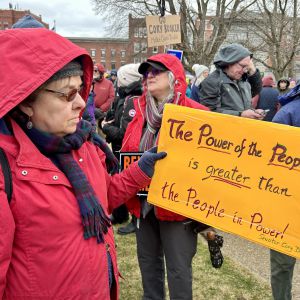 ‘It’s everything’: In largest rally yet, Trump protestors descend on Concord
‘It’s everything’: In largest rally yet, Trump protestors descend on Concord
But that doesn’t mean that it’s only alarm bells when it comes to the state’s housing outlook.
The historically tough market has led to unprecedented attention from the legislature, said Dapice.
The governor’s biennial budget last year included funding to continue the InvestNH program, provide affordable housing incentives and establish a “housing champions” grant program. This session, a special House committee considered several bills to address housing challenges – from reducing sprinkler requirements to expanding the ability to add accessory dwelling units and adjusting minimum lot size requirements.
“We’re happy to celebrate some of the good ideas that are moving forward in the State House this year,” he said.
The Affordable Housing Fund is a government tool that has successfully provided financing grants to developers to build over 3,600 units since 1988. Senate Bill 454 would double the annual appropriation to this fund, with revenue from the Real Estate Transfer Tax.
“This work is symbiotic with the work that we do in the homeownership space in so many ways. It houses the workforce that is essential to building and maintaining our homes,” he said. “It gives people a place to downsize so it gives people a stable, affordable home while they save.”
Last year, a report from New Hampshire Housing placed daunting metrics on solving the state’s shortages. To meet current demand, there was a need for an additional 23,500 units. By 2030, that need would grow to 60,000 units. And by 2040, a total of 90,000 units need to be built.
While those numbers seemed astronomical at first, they're not unachievable, said Dapice.
In the 1980s, building rates matched what is currently needed and continued into the early 2000s.
“I still find it amazing. I think it’s a reason to be hopeful,” he said.
From 1998 to 2006, the state was building over 46,000 units a year.
“We were listening to Christina Aguilera and the Backstreet Boys,” Dapice said. “And we were building a lot of units."
To continue to close on the 60,000-unit gap, building permit activity needs to continue to increase. From 2022 through the end of the decade, there needs to be 8,000 permits issued a year – or an increase of 36 percent.
That’s doable with a combination of local and state action, he said.
And that’s also not to say that there aren’t people who have found housing in the last year.
New Hampshire Housing financed 2,000 units of multi-family rental housing, provided rental assistance for 9,000 households across the state and helped 875 families purchase a home last year.
“We have been able to help twice as many homebuyers in the last year,” said Jussif. “And we were able to do it in every single corner of the state.”
This year, New Hampshire Housing is on track to assist 1,200 families, she said, despite the current market conditions.
“We’re not going to fix this housing crisis. It’s going to get a little bit better, but the housing shortage will still persist,” she said. “So instead of blaming the market and waiting for things to get better, we took action.”

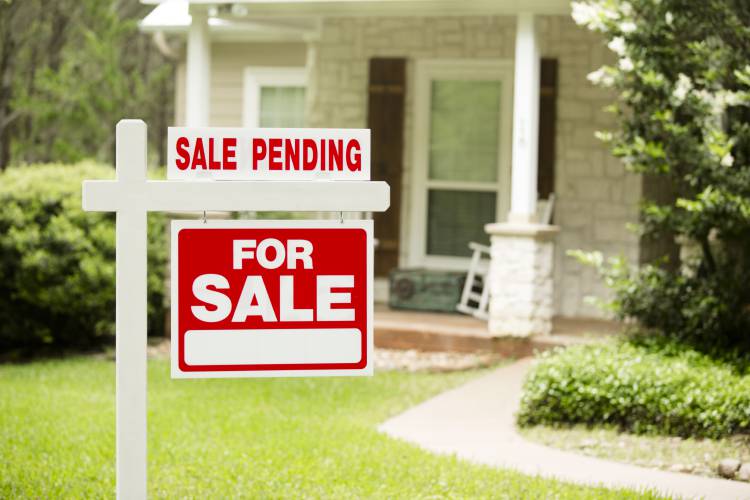
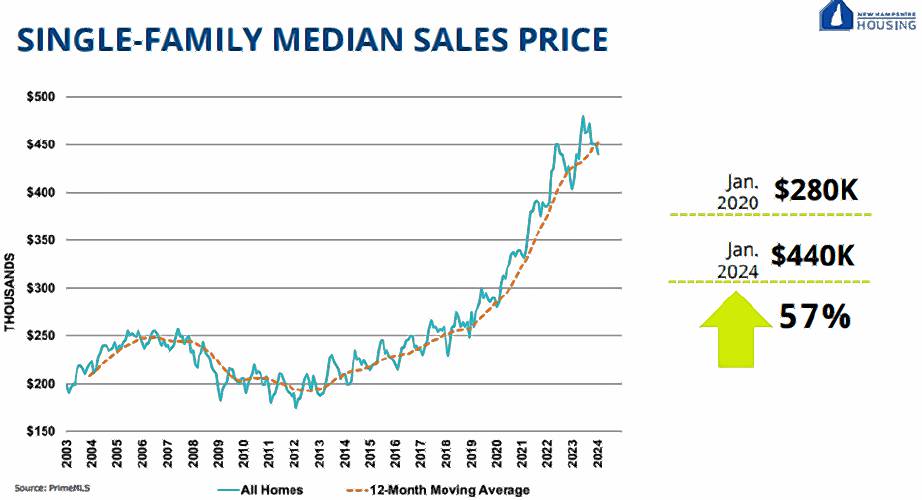
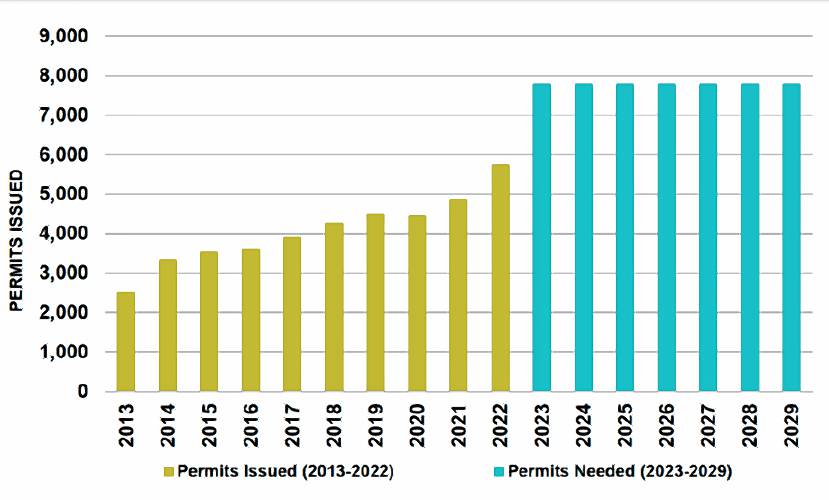
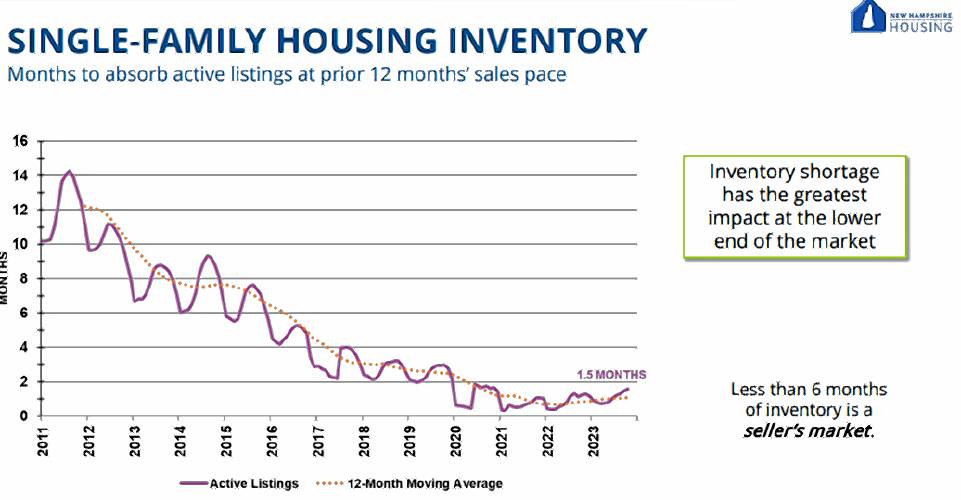
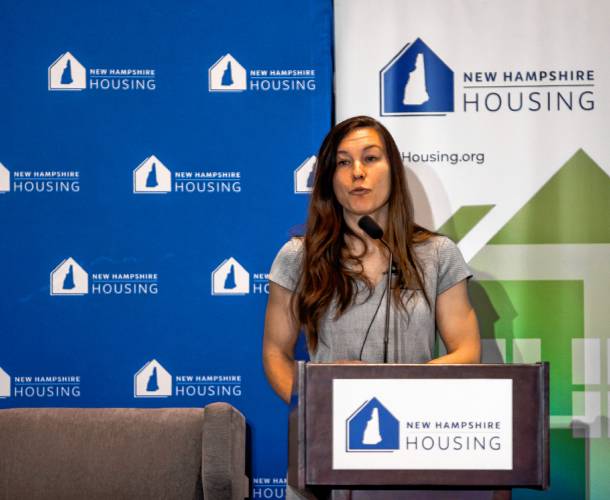






 Henniker ponders what is a ‘need’ and what is a ‘want’
Henniker ponders what is a ‘need’ and what is a ‘want’ Boscawen residents vote to fund major renovation of public works building
Boscawen residents vote to fund major renovation of public works building ‘Voting our wallets’: Loudon residents vote overwhelmingly against $1.7M bond for new fire truck
‘Voting our wallets’: Loudon residents vote overwhelmingly against $1.7M bond for new fire truck In Pembroke, Education Freedom Accounts draw debate, voters pass budget
In Pembroke, Education Freedom Accounts draw debate, voters pass budget
